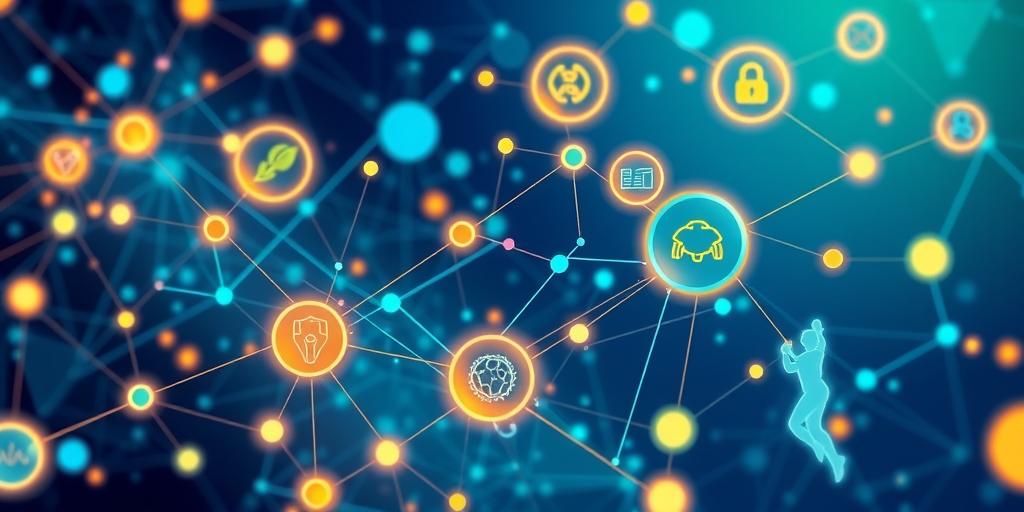Have you ever wondered about the unseen forces shaping our world, the quiet revolutions happening behind the scenes? Data science isn’t just about crunching numbers; it’s about unlocking hidden patterns and using them to create a better future, and its applications are far more surprising than you might think! Prepare to be amazed as we delve into some of the most unexpected uses of data science today.
Revolutionizing Healthcare with Data Science
Data science is transforming healthcare in groundbreaking ways. From early disease detection to personalized medicine, its impact is undeniable. Imagine a world where diseases are diagnosed before they even show symptoms! This isn’t science fiction; it’s the reality data science is building. Using machine learning algorithms, doctors can analyze patient data – medical history, genetics, lifestyle – to identify high-risk individuals and initiate preventative measures. This is a game-changer, reducing the burden of chronic diseases and improving overall health outcomes. The ability to predict potential health crises allows for proactive interventions, leading to better treatment plans and dramatically improved patient care. This preventative approach is particularly impactful in the detection of conditions like heart disease and cancer, leading to significantly increased survival rates.
Early Disease Detection and Personalized Medicine
Data scientists are developing sophisticated algorithms that can analyze medical images (X-rays, MRIs, CT scans) with incredible accuracy, identifying subtle anomalies that might be missed by the human eye. This leads to earlier and more effective treatments, significantly increasing the chances of successful recovery. Moreover, data science allows for personalized medicine, where treatment plans are tailored to an individual’s genetic makeup and lifestyle, maximizing effectiveness and minimizing side effects. This level of precision is revolutionizing healthcare and creating a more patient-centric approach to medicine.
Enhancing Cybersecurity with Data-Driven Insights
In today’s digital world, cybersecurity is paramount. Data science is providing crucial insights to combat cyber threats effectively. By analyzing vast amounts of data from various sources, data scientists can identify patterns and anomalies that signal potential attacks. This proactive approach allows for faster responses, reducing the impact of security breaches and protecting sensitive information. This isn’t just about detecting attacks; it’s also about understanding how attackers operate. Through data analysis, companies can strengthen their cybersecurity defenses and prevent future attacks. By developing advanced threat detection systems, data scientists are helping to secure our digital world, making the internet a safer place.
Advanced Threat Detection and Prevention
Machine learning algorithms are used to identify and predict malicious activities such as phishing scams, malware attacks and data breaches, providing early warnings. They are also adept at automatically responding to threats. This allows cybersecurity professionals to mitigate threats in real-time and minimize disruption. Additionally, data-driven insights can reveal vulnerabilities in systems and help to develop more robust security measures.
Optimizing Agriculture with Predictive Analytics
Data science is transforming the agricultural industry, increasing yields and sustainability. By analyzing weather patterns, soil conditions, and crop health, farmers can optimize planting schedules, irrigation systems, and fertilizer use. This precision agriculture approach reduces waste, improves efficiency and maximizes crop yield. This is especially significant given the growing global population and the need to produce more food using fewer resources. This increased efficiency leads to less environmental impact through reduced resource use and reduced waste.
Precision Agriculture and Sustainable Farming
Predictive analytics allows farmers to anticipate and mitigate risks, like droughts or pest infestations, by providing early warning signs and informing timely interventions. Through advanced data analysis, the use of pesticides and fertilizers can be reduced, leading to more environmentally friendly farming practices. Drones and sensors now provide real-time data, transforming the way agriculture is managed globally.
The Surprising World of Data Science in Sports
Beyond healthcare and agriculture, data science is making waves in the sports world. From analyzing player performance to optimizing team strategies, its impact is widespread. Teams are now using data to recruit talent, making decisions based on evidence rather than intuition. Data analysis allows for a deeper understanding of player capabilities, injuries, and potential for improvement. With sophisticated analytics, teams can also optimize training programs, improving overall performance and reducing the risk of injuries. The integration of data science in sports is revolutionizing the way games are played and won.
Enhanced Player Performance and Team Strategies
By analyzing large datasets of player performance, teams can identify strengths and weaknesses, allowing for personalized training regimes. This data-driven approach has transformed scouting and player development. The use of wearable sensors provides valuable information on player exertion and movement, optimizing training and recovery strategies.
Data science is quietly revolutionizing the world, touching nearly every aspect of our lives. From healthcare to agriculture, from cybersecurity to sports, its applications are endless. Are you ready to embrace the data-driven future? Dive in and explore the amazing potential of data science!




